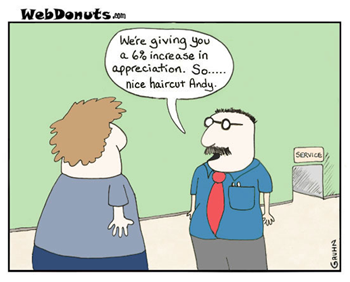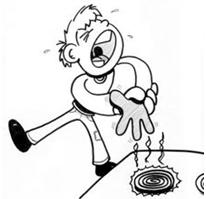Passionate Self Care – Stop Struggling and Seek Solutions
Do you have a history of struggling? Is this one reason you need to learn how to practice Passionate Self Care, because you’re worn out from the fight?
One of my favorite quotes about this is from Stuart Wilde, a British writer and Renaissance man:
Effort is a natural part of our physical state, but struggle is effort laced with emotion, and that is unnatural and unholy.

We tend to admire those who struggle to overcome adversity and dislike those whose efforts bring them success too easily. We cheer for Rocky and Slum Dog Millionaire and malign Bill Gates. If Gates had been poor as a child or were wheelchair-bound, we would be thrilled that he’s making all that money. But he wasn’t and he isn’t.
And therein lies the trap. We have created a rule that says, “In order to be successful, then I must struggle,” and we end up turning mere problems into adversity.
Psychiatrist Theodore Isaac Rubin wrote something that is both funny and profound:
The problem is not that there are problems. The problem is expecting otherwise and thinking that having problems is a problem.
Who told you life would be problem-free? Did either of your parents sit you down when you were a small child and say, “Don’t spend a moment worrying, sweetie. Life is a piece of cake. You will have no trouble at all”? Of course they didn’t. And yet, we seem so surprised when problems reveal themselves. We get upset. We take it personally as if some higher being is testing us.
Instead of struggling with problems, tap your instinct for solutions. Human beings LOVE to solve problems and you’re no different. Don’t you enjoy solving other people’s problems? Problem solving builds self-esteem and makes life incredibly interesting.
If I haven’t yet convinced you, here is what you might want to consider. The Law of Attraction says that you get more of what you focus on. As long as you are focused on your struggle, you will attract additional circumstances that cause you even more struggles.

On the other hand, if you seek solutions, then your focus is on well, solutions and you will attract more ideas for solving whatever dilemma you face. The more solution oriented you are, the easier life is. Struggle will be something you look back on shaking your head, wondering why you made life so difficult.
The next time you find yourself struggling do two things:
- Identify the problem you are trying to solve; and
- Ask, “What are some possible solutions?”
Then sit quietly and wait. The solutions will come to mind. If like me, you need to brainstorm with others, then gather one or more and go through steps 1 and 2 together.
The truth about life is: change is inevitable; struggling is optional. To practice Passionate Self Care, it is necessary to give up struggling. It will feel strange at first but I promise you won’t miss it.
Practice Appreciative Inquiry
Appreciative Inquiry means exactly what it says. You inquire about (or look for) things to appreciate. It is a term I believe was first coined in the Human Resources world. The old style of giving one-hour performance reviews was to spend 10 minutes telling an employee what she was doing well and the last 50 minutes letting her know all the things she needed to improve during the coming year. This is one of the reasons performance reviews have such bad press.
Utilizing Appreciative Inquiry, the manager would reverse the process. In other words she would spend the first 10 minutes telling the employee what she needed to improve over the next year and the last 50 minutes exploring ways they could leverage the employee’s skills.

When you accept that there is something called the Law of Attraction and that “you get more of what you focus on,” then you can see why practicing Appreciative Inquiry in a work setting would do more to improve performance than the mainstream style of performance reviews and management.
If, however, we limit Appreciative Inquiry only to that arena, we would be seriously shortchanging ourselves. When you approach all of life by looking for what you can appreciate, the Law of Attraction brings more things to you that match that feeling of appreciation. The more you appreciate, the better your life becomes. And it’s not that your life SEEMS to improve simply because your attitude is better. Things DO improve!!! It can be no other way.
This is good news for a number of reasons. Let’s say you have a boss who is driving you wild. It seems you can do nothing right for this person. No matter what you do, it’s wrong. Well, as long as you are noticing all the ways he’s driving you crazy, it will only get worse and worse. You are attracting it to you by your attention to it.
You can turn this situation around by starting to look for things to appreciate about your boss. It’s important that you be genuine, though. You can’t “pretend” to appreciate him by saying certain words when, inside, you’re thinking, “This guy is the world’s biggest jerk!” No matter how challenging, there has to be SOMETHING to appreciate! Maybe he’s good at making presentations. Maybe his desk is well-organized. Is he a pet owner who’s good to his dog? It doesn’t have to be big; it simply has to be something you can appreciate.
Once you learn to start looking for what you appreciate about him, you will begin to notice that he’s acting differently. It won’t be overnight and it won’t be dramatic but if you keep your eye out for things he’s doing right, you’ll start to see that he treats you better. He might still treat others on the team poorly but that’s their business, not yours. You can only take care of what you’re attracting.
Appreciative Inquiry is why children behave better for grandparents than parents. The grandparents continually look for all the wonderful things Johnny is doing while Johnny’s parents are looking for behavior to correct. The grandparents attract good behavior; the parents attract the tantrums.
Appreciative Inquiry is why some bosses can get great work out of their staff under the most grueling conditions while other bosses who DON’T practice it cannot get good work from their staff under the plushest of conditions. People will jump through hoops for appreciation.
So, if there is a situation you want to improve, look to see how you can apply the magic of Appreciative Inquiry to it.
Become one who continuously asks the question, “What’s good about this?” whether “”this” is an interaction with someone, a task, a job, etc. After just 30 days, you will find yourself with better circumstances than you ever dreamed possible.
Practice Appreciative Inquiry
Passionate Self Care – The Gift of Not Rushing
Passionate Self Care is mostly made up of small, seemingly insignificant things that, when added together, make a very large difference. Those of us who need to learn this all-important skill are thirsty for ways to do it. There are, however, creatures among us who already know how to take very good care of themselves. If any of them were to read my blogs on the subject they are likely to scratch their heads and think, “What’s the big deal about that? It’s just common sense!”
Well, so is not putting your hand on a hot stove but how many of us had to learn THAT the hard way?

A delicious and important way to passionately take care of yourself is to stop rushing. It requires some proactive action on your part but the payoff is huge.
Procrastinating is at the heart of most rushing. We put off an assignment until the last minute. We leave for an appointment five minutes later than we should have. We take daily saunas the week before our class reunion, convinced we can lose those ten pounds (not ME—I’m just sayin.’)
Rushing is linked to adrenalin (if there’s something to get addicted to, I’ll always find it). For years I was an adrenalin junkie, starting the moment I woke up (late) and frantically tried to get myself together so I could get to school, and then later work, on time. It’s an AWFUL way to start your day and yet, there I was doing it over and over. And you wonder why I drank.
The simplest way to stop rushing is to always give yourself 10-15 minutes leeway. Close your eyes for a moment and imagine what that might feel like.
What would it be like to actually taste and enjoy your breakfast each morning? (Breakfast? Who has time for THAT?!?)
See yourself arriving early enough for your doctor’s appointment that you can read the four-year-old magazine telling you who won the Academy Awards.
Imagine driving your car without gripping the wheel so hard your knuckles are white. Instead, you are enjoying the drive, admiring the scenery and singing along to the radio.

You arrive at your destination, leisurely gather together what you need to take with you before getting out to lock the car and actually notice where you’ve parked it. (I remember an incident when I was rushed to get to a workshop I was delivering. At the end of the day, when my feet hurt like hell, I was wandering around on every floor of the parking garage crying from fatigue while I tried to locate my car. It was pitiful.)
There are a number of good reasons for not rushing beyond the obvious one of just feeling better (which in and of itself is enough of an excuse to do it.) One of the best reasons is that, when you are stressed out from rushing, your brain sends chemicals into your body that are not at all good for you. Stress causes all kinds of mischief and so much of the stress caused by rushing is avoidable!
Look, don’t take my word for it. Try it! Try it for a week and see what a difference it makes. If it doesn’t work, I’ll happily refund your misery.
This is the sixteenth installment in my series on Passionate Self Care. Go to http://silverspeaks.com/blogs/ for related articles.
Passionate Self Care – When People Disappoint
I think one of the more difficult situations to handle in life is how to respond when you are disappointed by something someone has done. You can usually tell someone has disappointed you if you are feeling one or all of the following emotions when you think about him or her: anger, outrage, hurt or sadness.
Yesterday we held a memorial service for my dear friend Gayna who lost a horrific battle with metastatic breast cancer.

One of the “themes” of what people said about Gayna is that she had great expectations for the people she loved. She sure did. She did not suffer fools gladly and if she liked you, it was because she respected you and thought you were up for a “bigger game” in life than most people play. When you only see the best in people, you are likely to be disappointed from time to time, and she was.
The lesson to be learned about Passionate Self Care from Gayna is that she never adjusted her own personality to accommodate anyone else’s unresolved issues. What do I mean by that? Well, Gayna was very direct. If you reacted negatively to something she said, she was willing to discuss it with you and make sure there was no misunderstanding but she never filtered your negative reaction to mean that there was something wrong with how she communicates. She knew your reaction was your responsibility, not hers.
As someone who has been trying to recover from “people pleasing,” I cannot help but admire that. To take a stand that we are each responsible for our own reactions to things takes lots of courage. It is saying, “I will be responsible for taking care of my emotions; you are responsible for taking care of yours.”

The people who were willing to live that way flourished around Gayna. I can tell you that I am a better person after hanging out with her these last three years and others who stood up and shared at her Memorial said the same about themselves. She held out a mirror to me and let me see that I get to choose how I interpret disappointments.
As I’ve traveled though life, the people I meet who are the most spiritual are the ones who have suffered most. Gayna had suffered greatly in her life and she lived with fear every day. Because of that, whenever people disappointed her, (and she felt hurt very deeply) she eventually would say, “They’re just afraid.” I learned from her that hurt people hurt people.
This past week I’ve thought a lot about how weird death is. One day a person is here and the next they are gone. I realize that the test of what you’ve left behind is how often people think about you after. I know Gayna will be in my thoughts for years and that she has and will continue to impact how I live my life.
What a gift.
This is the fifteenth installment in my series on Passionate Self Care. Go to http://silverspeaks.com/blogs/ for related articles.
